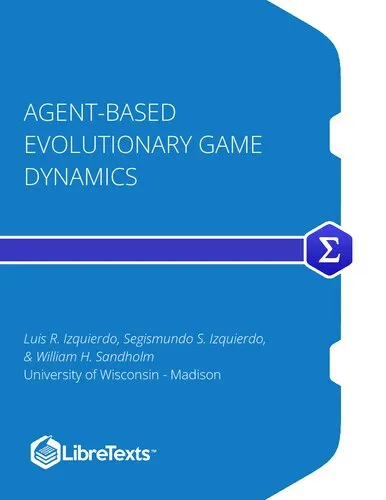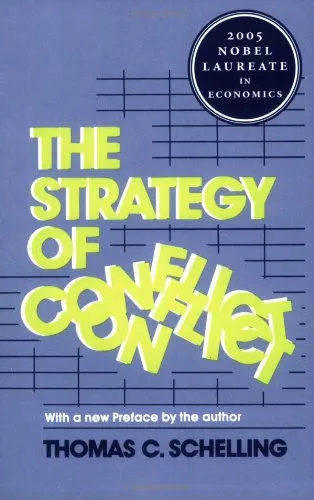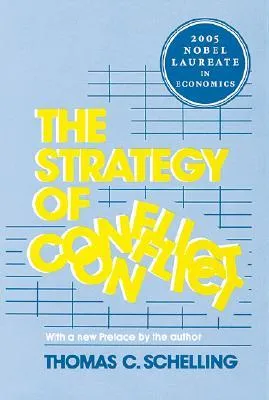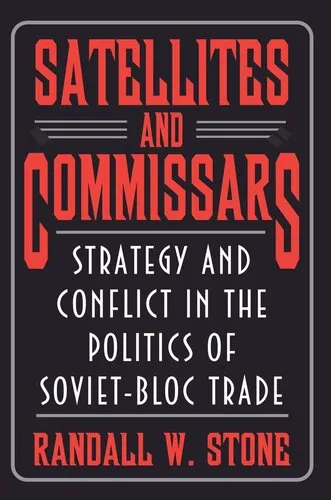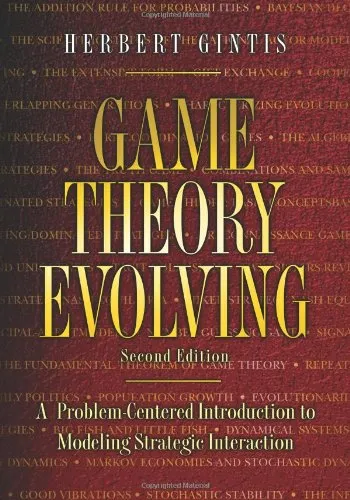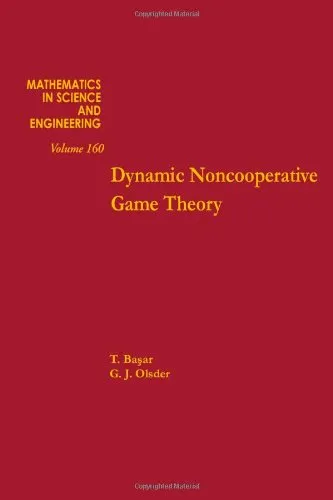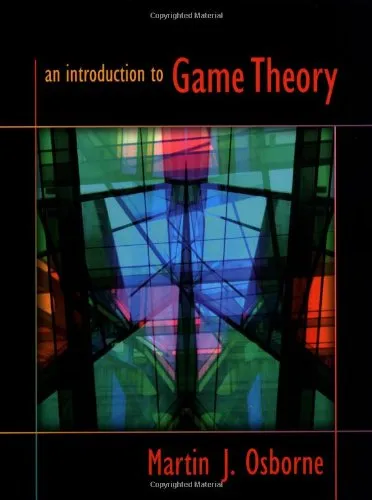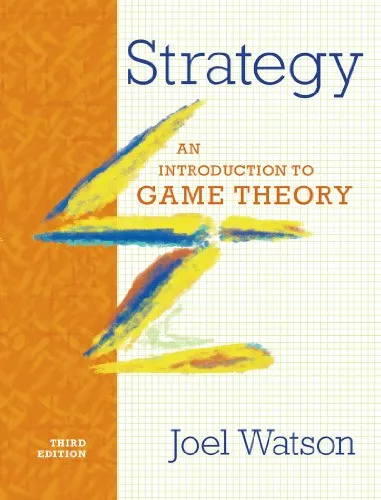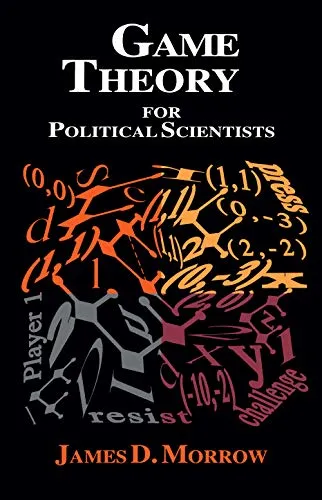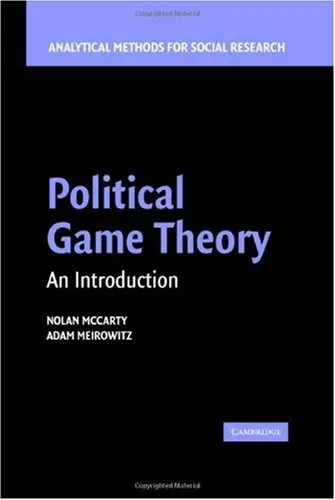Agent-Based Evolutionary Game Dynamics
4.5
Reviews from our users

You Can Ask your questions from this book's AI after Login
Each download or ask from book AI costs 2 points. To earn more free points, please visit the Points Guide Page and complete some valuable actions.Related Refrences:
Introduction to Agent-Based Evolutionary Game Dynamics
Welcome to the fascinating world of evolutionary game dynamics, where mathematical theory collides with computational simulations to unravel the complexity of decision-making in a wide variety of environments. Written by Luis R. Izquierdo, Segismundo S. Izquierdo, and William H. Sandholm, Agent-Based Evolutionary Game Dynamics is a thought-provoking text that blends theoretical rigor with practical implementation. This book sheds light on how large populations of self-interested agents behave, interact, and evolve over time, providing essential insights for those intrigued by the intersection of agent-based modeling, game theory, and evolutionary dynamics.
Whether you are an academic, student, or practitioner, this book offers a comprehensive and nuanced approach to evolutionary game theory by leveraging agent-based methodologies. It systematically explores how individual behaviors aggregate to produce societal-level phenomena, presenting a bridge between traditional mathematical theory and computational experimentation.
Detailed Summary of the Book
The book delves deeply into the concepts of evolutionary game theory, focusing on agent-based models as a tool for analyzing the dynamics of strategy evolution in populations. It begins with an introduction to classic evolutionary game theory, discussing central ideas like replicator dynamics, equilibrium concepts, and standard payoff calculations. However, where this book truly stands apart is in its use of agent-based simulations to model these concepts, allowing for a more nuanced and detailed exploration.
The authors present an accessible yet rigorous framework for constructing and analyzing models where agents are boundedly rational, adaptive, and capable of interacting according to customizable rules. Through these models, readers gain a deeper understanding of how strategic behaviors spread and persist within populations influenced by environmental factors and individual heterogeneity.
Key areas covered include:
- The fundamentals of evolutionary game theory and its applications to social, economic, and biological systems.
- Agent-based modeling as a computational approach to complement analytical game-theoretical tools.
- Detailed algorithms and methods for simulating large-scale agent interactions.
- Case studies that highlight the practical implications and real-world applications of the framework.
The authors emphasize the importance of combining agent-level models with population-level insights to produce a more comprehensive picture of evolutionary processes. Their treatment is both theoretical and computational, offering something valuable for readers from both disciplines.
Key Takeaways
- Interdisciplinary Approach: The book bridges the gaps between evolutionary game theory, agent-based modeling, and computational social science.
- Practical Use of Agent-Based Models: Readers learn how to implement agent-based simulations for exploring evolutionary dynamics.
- Behavioral Insights: The book provides deep insights into how micro-level decisions lead to macro-level outcomes over time.
- Comprehensive Framework: It combines analytical techniques with computational experiments, providing tools for both qualitative and quantitative analysis.
- Real-World Applications: Scenarios covered in the book have implications for economics, biology, and even policy-making.
Famous Quotes from the Book
"Understanding the collective outcomes of individual decisions is at the heart of evolutionary game dynamics."
"Agent-based modeling provides a powerful lens through which the complexity of adaptive behavior can be observed and analyzed."
Why This Book Matters
This book is groundbreaking in its ambition to blend the abstract rigor of evolutionary game theory with the concrete computational power of agent-based modeling. At a time when computational simulations are becoming increasingly necessary to analyze real-world systems, the text provides vital methodologies and tools for researchers and professionals alike. From understanding the spread of strategies in social dilemmas to solving coordination problems in economics, Agent-Based Evolutionary Game Dynamics lays the foundation for groundbreaking discoveries.
Moreover, the book's emphasis on adaptability and heterogeneity makes it highly relevant in today’s rapidly changing world. By focusing on the individual-level interactions that shape collective dynamics, it encourages critical thinking and fosters a deeper appreciation of the importance of diversity in strategic behavior.
For anyone who is fascinated by the interplay of individuals in evolutionary systems, this book offers a unique perspective and an indispensable toolkit for exploring the dynamic complexities of the world around us.
Free Direct Download
You Can Download this book after Login
Accessing books through legal platforms and public libraries not only supports the rights of authors and publishers but also contributes to the sustainability of reading culture. Before downloading, please take a moment to consider these options.
Find this book on other platforms:
WorldCat helps you find books in libraries worldwide.
See ratings, reviews, and discussions on Goodreads.
Find and buy rare or used books on AbeBooks.
1329
بازدید4.5
امتیاز0
نظر98%
رضایتReviews:
4.5
Based on 0 users review
Questions & Answers
Ask questions about this book or help others by answering
No questions yet. Be the first to ask!
